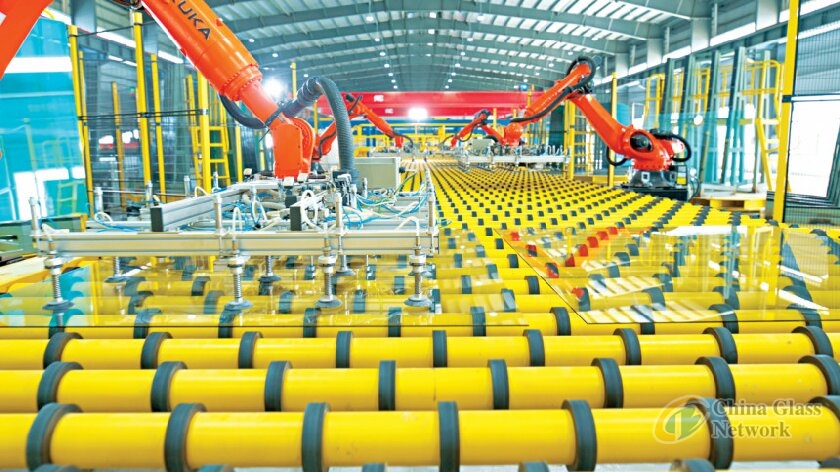Post Time:Oct 09,2024Classify:Industry NewsView:1137
AkijBashir Group Managing Director Sk Bashir Uddin says:
To meet the rising demand for basic and high-quality glass in Bangladesh's construction sector,
AkijBashir Group recently began production at a sprawling plant in Habiganj's Madhabpur upazila,
placing emphasis on more transparent and pure products to position itself as a key player in the rapidly growing market.

"The building materials market has experienced tremendous growth over the past two decades,
driven by increased purchasing power and a significant portion of remittances from migrant workers
being spent on home improvements," Sk Bashir Uddin, managing director of AkijBashir Group, told The Daily Star in an interview.
As traditional earthen houses and tin-roofed homes evolved into concrete structures over time,
glass became an essential component of modern construction.
There has been a surge in demand for basic glass products like float glass for windows,
as well as advanced technical glass for large-scale infrastructure projects such as shopping malls, hospitals, and corporate offices.
"We have taken all these factors into account before selecting our projects," he said.
"We focused on producing traditional window glass and made significant strides in increasing transparency
and quality by refining our raw materials and streamlining production processes."
Bashir Uddin added that venturing into the glass industry was a natural progression for the Akij Group,
which already offered several products in the building materials sector, including cement, ceramics, and sanitary ware.
"Expanding into glass production was a logical step towards our vision of becoming a complete home solutions company,"
Subsequently, following his exit from Akij Group, which he led as managing director for over
one and half decades, and the formation of the AkijBashir Group as part of the family settlement,
the glass business became part of his portfolio under AkijBashir Group.
AkijBashir Group is also actively involved in manufacturing ceramics, sanitary ware and particle boards.
He added that their products, which launched in September this year, were poised to raise standards.
"We believe our glass products have achieved the highest level of transparency available in the market.
At the same time, we are steadily introducing the necessary technical features to meet both the functional
and aesthetic demands for high-end glass products."
Asked what distinguishes Akij Glass from competitors, he said that apart from a commitment to innovation,
their sustainability efforts and eco-friendly initiatives ensure that the highest environmental standards are met while delivering products.
"When we planned this project, we prioritised environmental responsibility. Currently, up to 71 percent of
our electricity consumption comes from renewable energy sources. The goal is to reach 100 percent over time," he said.
"Achieving this requires significant investment and meticulous planning; it cannot happen by chance."
"Glass production is highly energy-intensive, but we have managed to balance energy efficiency with
uncompromised functionality. Our financial partner, IDCOL (Infrastructure Development Company Limited),
has been immensely supportive in completing this initiative."
He also emphasised that their products would be free from defects like bubbles and stones.
"We are the only company in the country to have installed an online scanner, ensuring that every product is
digitally scanned for quality. This allows us to maintain precise dimensions and superior flatness."
He proudly claimed that Akij is the only company in the country producing glass with a 700 ppm
(parts per million) rating, resulting in clearer and higher-quality glass products.
"While some competitors claim to produce 700 ppm glass, it's simply not true. This will become glaringly
obvious when you compare our glass side by side with theirs. The difference is like day and night."
Asked about why he chose Madhabpur as the location for the facility, he explained: "It was due to the
proximity of raw materials and natural resources. Sylhet offers relatively uninterrupted gas supplies and
essential materials like sand and gas are close by. However, there are other crucial chemical components involved."
The project, which currently employs over 1,000 people, faced significant cost increases due to delays caused
by the Covid-19 pandemic and the taka's slide against the US dollar, ultimately reaching Tk 2,000 crore.
He also confirmed that the company was preparing for international markets.
"When production exceeds domestic demand, we must explore foreign markets. We need to
keep the plant operational; stopping glass production isn't an option."When asked about handling
technically complex ventures within his portfolio, he credited the legacy of Akij Group, which has thrived for over 70 years.
"Innovation has always been at the core of Akij's success. Personally, I was trained by my father,
who was constantly pushing for excellence and innovation across industries."
Industry insiders say that around 3.5 lakh tonnes of glass is consumed annually in Bangladesh, including float, reflective and soundproof variants.
Source: www.thedailystar.netAuthor: shangyi
PrevGlassBuild America 2024: Biggest event in 16 years
Korea’s KCC Glass to invest $525 mn more in Indonesian plantNext